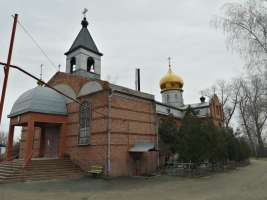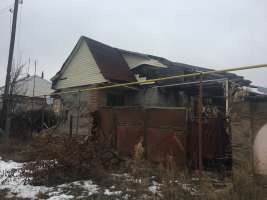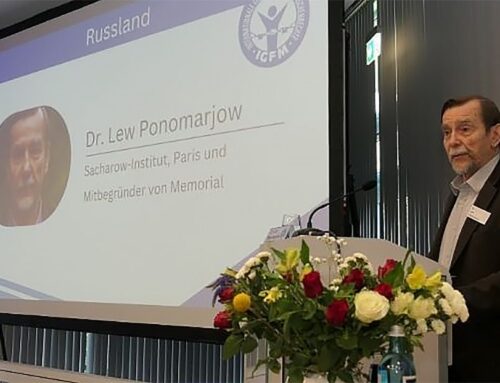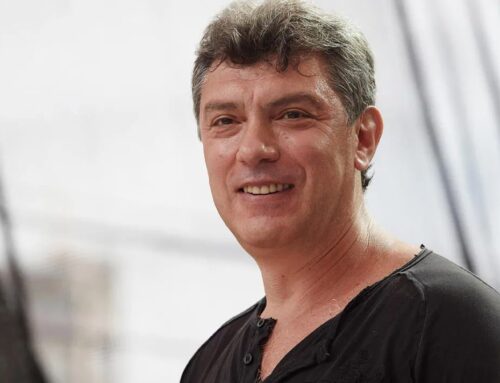
Life on the Demarcation Line: One Man’s Fate
Always when I approach Stanytsia Luhanska (a Ukrainian village bordering the so-called Luhansk People’s Republic), I feel anxiety. Inside, everything shrinks painfully and a sense of dread is combating an overwhelming desire to see my grandparents, to wander the streets I used to walk on as a child, to stop by a flower shop with my grandmother and to buy some fresh milk on the way home. We pull out onto the main street and move towards my grandparents’ house. So close, so far away.

Checkpoint “Stanytsia Luhanska” (Ukrainian side)
I remember our escape from Luhansk as if it was yesterday instead of seven years ago. On June 2, 2014, I woke up at 5:30 in the morning, although the alarm clock should have rung much later. I woke up because the sound of a squall of wind outside my window. That’s what it felt like to me in the first few minutes of my awakening. The next few minutes later, I realized that it wasn’t wind at all, as such a noise was not realistic for wind. As I later found out, a Ukrainian fighter jet was flying over Luhansk and pro-Russian separatists were seizing a border outpost in an area that was a five-minute drive from our house and there was a fight between the separatists and the Ukrainian military. We followed the news the whole day. Around 6 p.m., a fighter jet launched an airstrike on the regional state administration of Luhansk. There were very many victims. In the evening the local news broadcast the names of the dead, and among them was my former teacher. What seemed so distant and unreal was now happening to me and my family. It was a Monday.

Damaged administration building
Having rested from the trip, my grandmother and I decided to take a walk around Stanytsia. There were brutal 15 degrees below zero frost outside, but the sun was shining brightly, making it seem that there was no cold at all. Walking along Central Street, I looked around. The flower shop was at the same place as before, and it touched me in a childlike way. It was a kind of reminder of my past life. But then I saw the administration building, and everything inside me shrank. In front of me stood the administration building, completely riddled with shells. It literally plunged me headlong into the icy water, forced me to put aside my childish sentiments and return to the merciless reality.
Turning onto another street, I also saw a huge number of houses destroyed. My grandmother told me and I knew it that Stanytsia Luhanska was on fire in the summer 2014. Shells flying from Luhansk city direction destroyed houses not only in Stanytsia Luhanska, but also in nearby settlements. That summer, my grandparents lived mostly in a cold basement, and only came out in the evening to have a word with the remaining neighbours and call us, i.e. the children and grandchildren, to say that everything was all right. Although who can say that what has been happening since 2014 is “all right”?

St. Nicholas Church

Destroyed house in Stanytsia Luhanska
The whole time I was with my grandparents, I thought about the ruined lives of so many people that I couldn’t get my head around it. When it was time to leave, I was both sad and relieved. I certainly didn’t want to leave my grandparents, but I realised that if I stayed here for any longer I might lose my mind. Destroyed roads, piles of rubbish lying around houses, packs of hungry homeless animals that people either abandoned when they fled themselves or kicked out of their homes unable to feed them, ubiquitous Russian television (yes, despite the fact that Stanytsia Luhanska is a part of Ukrainian territory, the television here is predominantly Russian and in order to switch to Ukrainian television, one has to buy a special expensive set-top box, but almost none of the pensioners buy it, as they do not have extra money) and all this is covered by grey viscous hopelessness.
Most of the population of Stanytsia Luhanska are pensioners. And I ask myself and you: how is it possible that people who are almost at the end of their way, however it may sound cynically, and who sincerely love their country, do not even live but exist in such devastation and endless uncertainty? And how many such settlements are there not only in eastern Ukraine, but throughout the whole country? Famous writer Mikhail Bulgakov wrote that “he who loves must share the fate of the one he loves”. Reading all of the above, this phrase could safely be questioned, but no one has promised us the MUTUAL love, have they?








Leave A Comment